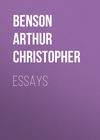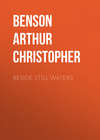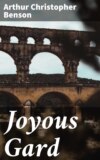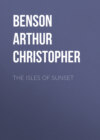Buch lesen: «Essays», Seite 9
Blake's republicanism in art was such that he chose his masters by a theory of his own: Raphael, Michael Angelo, Albert Dürer and Giulio Romano were his idols; Titian, Rubens, Correggio and Rembrandt he abhorred and despised. The selection on the whole did him credit, at the time when it was made. At the same time the attitude which he adopts towards the profanum vulgus is almost sacerdotal in its claims. It never for a moment conceals that the artist must please his audience first; but his eye, as he chides, is on the beast. He flouts the verdict of his contemporaries on himself, while he holds the verdict of posterity over the head of his enemies. The attitude is neither dignified nor even rational. "To imitate," he wrote, "I abhor. I obstinately adhere to the true style of art, such as Michael Angelo, Giulio Romano, Raphael and Albert Dürer left it. I demand therefore of the amateurs of art the encouragement which is my due. If they continue to refuse, theirs is the loss, not mine, and theirs is the contempt of posterity. I have enough in the appreciation of fellow-labourers; this is my glory and my exceeding great reward: I go on and nothing can hinder my course."
With respect to Blake's character as exhibited in his life, it is difficult, treating him as a sane man, to understand the estimate formed of him by his admirers. There is too much puerile violence and loud self-complacency, too much aggravating childishness and wilful eccentricity, not to offend and even disgust. But treat him as a man of unbalanced brain, and these variations are the very things we should expect, and the hypothesis at once clears the ground.
Both Mr. Rossetti and Mr. Gilchrist have been at pains to prove that Blake was not mad. Perhaps he was not, as they would define madness; but when we find gravely alleged as testimony the fact that his intimate friends did not think him mad, and, on the other hand, the Examiner, or some popular journal of the day, speaking of Blake's little exhibition of pictures "as the production of an unfortunate lunatic who owes his freedom from restraint solely to his personal inoffensiveness" – we know what view we are compelled to take. If Blake was not a madman, he was a fraudulent impostor. Perhaps Hamlet was not mad; perhaps Cowper was not mad. No doubt madness is a divine attribute, and our madmen are our only sane thinkers; but the use of such a term is only a question of majorities, and it is ill to tinker with definitions. A man who saw God Almighty for the first time when he was four years old – "you know, my dear, he put his face to the window and set you screaming," as good Mrs. Blake said; a tree filled with bright angels near Islington at the age of ten; and a ghost in Hercules Buildings at Lambeth, "scaly, speckled, very awful," stalking downstairs, is not as other men. He may have been a philosopher, a poet, an angel; but the world has a right to call such men mad, and will do so to the end of the chapter. Mr. Gilchrist says, in the Dictionary of National Biography: "As a boy, he perhaps believed these were supernatural visions: as a man, it must be gathered from his explicit utterances that he understood their true nature as mental creations." And again: "Blake was wont to say to his friends respecting these 'visions,' 'You can see what I do if you choose. Work up imagination to the state of vision, and the thing is done.'"
Putting aside Blake's visions for a moment, I would be content to rest my case on the following letter:
Letter to Flaxman, written from Felpham
"DEAR SCULPTOR OF ETERNITY,
"We are safe arrived at our cottage, which is more beautiful than I thought it, and more convenient. It is a perfect model for cottages, and, I think, for palaces of magnificence – only enlarging, not altering its proportions, and adding ornaments and not principles. Nothing can be more grand than its simplicity and usefulness. Simple without intricacy, it seems to be the spontaneous expression of humanity, congenial to the wants of man. No other-formed house can ever please me so well, nor shall I ever be persuaded, I believe, that it can be improved either in beauty or use… Felpham is a sweet place for study, because it is more spiritual than London. Heaven opens here on all sides her golden gates; her windows are not obstructed by vapours; voices of celestial inhabitants are more distinctly heard, and their forms more distinctly seen; and my cottage is also a shadow of their houses. My wife and sister are both well, courting Neptune for an embrace… And now begins a new life because another covering of earth is shaken off. I am more famed in heaven for my works than I could well conceive. In my brain are studies and chambers filled with books and pictures of old which I wrote and painted in ages of eternity before my mortal life; and these works are the delight and study of archangels. Why then should I be anxious about the riches or fame of mortality? The Lord, our Father, will do for us and with us according to his divine will for our good.
"You, O dear Flaxman, are a sublime archangel – my friend and companion from eternity. In the divine bosom is our dwelling-place. I look back into the regions of reminiscence and behold our ancient days, before the earth appeared in its vegetated mortality to my mortal vegetated eyes. I see our houses of eternity, which can never be separated though our mortal vehicles should stand at the remotest corners of heaven from each other.
"Farewell, my best friend. Remember me and my wife in love and friendship to our dear Mrs. Flaxman, whom we ardently desire to entertain beneath our thatched roof of rusted gold. And believe me for ever to remain your grateful and affectionate
"WILLIAM BLAKE.
"Felpham,
"Sept. 21, 1800, Sunday morning."
This letter seems to me to bear traces of that cloud on the brain which is involuntary, and beyond the reach of affectation. Or take another episode – that of the visionary heads, of which the "Ghost of a Flea" remains as one of the most diabolically inspired creations of the human fancy; the bloodthirsty eye, the remorseless jaw, the plated mail of the neck, the suppressed look of lustful fury, combine to give it a peculiar horror.
"Varley, water-colour painter and astrologer, it was," says Gilchrist, "who encouraged Blake to take authentic sketches of certain among his most frequent spiritual visitants. The visionary faculty was so much under control, that at the wish of a friend he could summon before his abstracted gaze any of the familiar forms and faces he was asked for." This was during the favourable and befitting hours of night, from nine or ten in the evening till one or two, or perhaps three or four o'clock in the morning; Varley sitting by, "sometimes slumbering and sometimes waking." Varley would say, "Draw me Moses," or "David"; or would call for a likeness of Julius Cæsar, or Cassivelaunus, or Edward III., or some other great historical personage. Blake would answer, "There he is." And paper and pencil being at hand, he would begin drawing with the utmost alacrity and composure, looking up from time to time as if he had a real sitter before him… Sometimes Blake had to wait for the vision's appearance: sometimes it would come at call. At others, in the midst of his portrait, he would suddenly leave off, and, in his ordinary quiet tones, and with the same matter-of-fact air another might say, "It rains," would remark, "I can't go on – it is gone: I must wait till it returns;" or – "It has moved – the mouth is gone;" or – "He frowns: he is displeased with my portrait of him." In sober daylight, if criticisms were hazarded by the profane on the character or drawing of any of these visions, "Oh, it's all right," Blake would calmly reply. "It must be right: I saw it so."
Among the personages whom Blake then drew were the Builder of the Pyramids, Edward III. – with a peculiar protrusion of skull, said by Blake to be characteristic of tyrants in the spirit world – a man who instructed Blake in painting in his dreams, David, Uriah, Bathsheba, the Ghost of a Flea – to which allusion has been made above – Joseph and Mary and the room they were seen in, Old Parr at the age of forty, and many others which are still extant.
But allowing this want of balance to account for the abnormal variations of vanity, jealousy, and violence, we have a residuum of manly independence, sweet austerity, and faithful devotion that is rare in any annals, most of all in the annals of art. What a touching story it is of the young artist who came to Blake and complained that he was deserted by his inspiration. Blake turned to his faithful wife: "It is just so with us (is it not?) for weeks together, when the visions desert us. What do we do then, Kate?" "We kneel down and pray, Mr. Blake." What pathetic dignity there is in his often-repeated saying, when time after time his prophetical books were returned upon his hands – "Well, it is published elsewhere—and beautifully bound."
Blake is one of the few artists who worked all their life long under the pressure of poverty, of whom we can safely assert that he would have worked as hard had he been possessed of a competence; on the other hand, it is equally true that his work would not have been so lasting; the need of finding subsistence kept him saner than he wished to be; had he been a wealthy man, we should have had perhaps twice as many prophetical books – in which his heart was all the time – and no Book of Job. FitzGerald said there was hardly a single poem of Blake's that was good all through. But the man was one of those few who do with simple seriousness whatever comes to their hand, from an illustrated show-list for Wedgwood to the sublimest and most stupendous designs of heaven and hell. The consequence is that some of his crudest designs, almost childish in their execution, have a suggestive insight that is altogether out of proportion to the artistic value of the work. It would be easy to multiply examples. But take the familiar instance of the early wood-cut, "I want, I want," where the little group of enthusiasts have set from a bald shoulder of the globe, as it swims in dark space, a filmy ladder to the crescent moon.
The great value of Blake's life, after all, apart from his productions, is that he is one of the saints of art. That is the problem! To retain simplicity, naturalness, unselfishness in the service of art. Art seems almost to demand self-absorption, self-cultivation, however noble be the ultimate end it sets in view. The duty of cultivating sensitiveness to impressions is hard to reconcile with high and pure devotion. We in this century feel the contrast perhaps too painfully. The fashionable habit of seeking amusement and interest in the problems of others, and on the other hand the blind, dark pressure of Democracy on life, throw into painful prominence the fastidious seclusion of the artist. Nowadays, for a man to throw himself blunderingly into philanthropy, disguising his own reckless hankering after power and influence under the name of duty, is held to have something of heroism about it. Even failure there is thought to be honourable. But the artist who, in obedience to as inevitable, as high an impulse, isolates himself in the sacred pursuit of beauty in all her forms, is called by hard names if he does not make himself a reputation; and if he does attain notoriety, his selfishness, at all events, acquires prestige. It is in reality a far more arduous undertaking. Fiction and life are full of memorable failures. Roderick Hudson is a magnificent presentation of the failure of character to sustain the devotion of art. The life of one of Blake's greatest admirers, D. G. Rossetti, must be forgiven in the light of his achievements, but cannot be forgotten as one of the most dark and shuddering tragedies ever played upon the human stage. But, on the other hand, such a life as Edward FitzGerald's, with its scanty and fortuitous successes, is yet lifted by its dignity and austerity as high and higher than that of many professional saints. The message that we are in need of is something that will introduce the loving simplicity of the Christian Revelation into the world of beauty; for, comprehensive as that revelation claims to be, it is difficult to define the exact place in the Christian economy which is reserved for hearts haunted by the tyrannical instinct of beauty. Such a life as Blake's is an attempt at the reconciliation of the matter. He seems to get nearer the divine principle than many professed religionists; as he himself wrote, "I have laboured hard indeed, and been borne on angels' wings."
THE POETRY OF KEBLE
IT is a difficult matter to criticise a religious poet from a purely literary standpoint. There was a curious instance of this last year. When the Keats Memorial was unveiled at Hampstead, Mr. Gosse spoke some disrespectful words of Kirke White. There followed a short sharp controversy in the Standard on the subject. The defenders of Kirke White's position as a poet, based their arguments, as far as I can remember, on the grounds (1) that he was a good Christian, (2) that he might have been Senior Wrangler, (3) that he was the victim of an early death. The facts themselves, or rather the facts in combination, may certainly be said to invest Kirke White with a romantic interest. Southey, indeed, felt this so strongly that he wrote a memoir of the young man, and edited his Remains. But any one who will now study Kirke White's poems in themselves, as literature, without prejudice, must inevitably come to the conclusion that they are worthless, and disfigured by every fault that can be laid to the charge of poetry. They are not even promising. They are tedious, grotesque, inharmonious, dull. And yet they have a place in the Aldine edition of British poets.
No one would, of course, dream of classing Keble with Kirke White. Keble was a wise, able, devoted man, narrow-minded, no doubt, and timid in thought, if not in action. Not imaginative nor vivid, but intensely affectionate, dutiful, and reserved; a lover of Nature, scenery, friends, children, reflection; somewhat melancholy, no doubt, and not growing in hopefulness as years went by – with little independence of thought or character; but reverent, a lover of precedent, and authority, and things established. Altogether a wholesome, valuable man, like Telemachus in Tennyson's "Ulysses," of a type of which Englishmen may be proud; but not a man who can be called interesting or romantic in any degree; even Mr. Lock, who has written his life in a lucid style, and with pious discretion, would admit that.
There is something eminently depressing about Keble's want of personal ambition; no doubt, it was a triumph of grace over nature; but one would have liked the triumph to have been a little more impressive. In the celebrated canvass for the Provostship of Oriel, where the decision of Newman and Pusey turned the scale, and gave it to Hawkins rather than Keble, it is evident that Keble was not greatly disappointed; he acquiesced too easily. In some men, this could almost be called indolence, but in Keble we may call it modesty. It argues, however, a certain want of fire, of intensity – and the same is the case with his writings.
Keble never lets himself go; he is always checking and controlling the impulse of song. And thus he spoke of his own poetry as a relief from graver thoughts: "Poeticæ vis medica," the healing power of poetry, he called it; as something to which he could turn to distract and soothe him, but a πἁρεργον nevertheless, not the business of his life, not an overmastering impulse, an imperious need of self-expression. This did not lead to the careful chastening and correcting of his verse that one might expect. There have been poets, in whom the sense of perfection was very strong, like Gray, who worked rarely, slowly, painfully, producing a marvellous, jewelled masterpiece, wrought out touch by touch. But there was nothing of this about Keble; he was copious, fluent, uncritical; he was never fastidious, and allowed much to go out under his name which was quite unworthy of an able man; puerile, inelegant stuff; no one, we may say, was ever capable of more extreme flatness than Keble reached in some of the poems in the Lyra Innocentium; such as the compositions entitled "Irreverence in Church," and "Disrespect to Elders," where it is asked that some good angel may wait, "With unseen scourge in hand, On the Church path, and by the low school door," in order to "write in young hearts Thy reverend lore," – very advisable, no doubt, but how suggestive of Bumble, and the charity children, and the rod of office! A sense of propriety, we will not say of humour, would have prevented such a bathos as this.
It is not, of course, contended that a sense of humour is, in the least, part of the outfit of a poet. Shelley had none, yet was rescued from bathos by enthusiasm. Wordsworth had none, and he wallowed in bathos. The sense of humour is merely negative in a poet; it does not give a poet sublimity, but it rescues him from puerility and absurdity. And so into both of these faults Keble not unfrequently fell. In the Lyra Innocentium and the miscellaneous poems are many very lamentable verses. In the Lyra indeed, there are few that are not lamentable. The fatal blight of the book is that it is occupied throughout, not with what one can learn from children, but with what one can teach them. It upholds an impossible and undesirable ideal for childhood – the ideal of the sainted infant, cheerful, high-principled, devout, obedient, but neither natural nor child-like. Keble was very fond of children, but only a childless man could have constructed so false a picture. This false note vitiates the whole book; we are conscious of an under-current of rebellion as we read it. We realise that, after all, we do not want children to be such as Keble describes them. We do not wish them to be "prostrate in their sin and shame," as in the poem of "Absolution" in "Early Encouragements." And it is not poetry, whatever it may be, to tell a child that
The Sunday garment, glittering gay,
The Sunday heart will steal away.
Even from the religious point of view, the book is pharisaical; it tends to multiply offences, to create a fantastic and elaborate morbidity of conscience fatal to the natural simplicity of childhood, that should be so jealously guarded.
The following incident casts a curious light on Keble's taste. On a stray piece of paper still preserved in his writing are the following "principles in choosing and correcting hymns"!
(1) Always use "we" instead of "I," or nearly always.
(2) Insert as many touches of doctrine as may be.
(3) Under every head have at least one ancient or archaic hymn.
This is an interesting and characteristic fragment, because it illustrates so well Keble's intense dislike to the personal, the autobiographical element in poetry, that "self-revelation" which is so much in demand at present. Secondly, it shows that he laboured under a deep-seated error as to what was and what was not suitable material for poetical treatment. The second principle would be bad enough if it referred to composition, but when it deals with the correction of the hymns of other authors it is unpardonable. The third principle illustrates his reverence for antiquity and tradition.
We will now take the Christian Year and we will say at the outset that we do not propose to consider it, except incidentally, from the doctrinal and hortatory point of view. We must first remember that whatever be its merits and demerits, it is a book that has achieved a popularity of an absolutely phenomenal kind. It is a book that has been bought and read in England as Shakespeare, Bunyan's Pilgrim's Progress, and Robinson Crusoe, and in America as the works of E. P. Roe. In 1853 it was in its forty-second edition, twenty-five years after its publication. In 1873, when the copyright expired, it had reached the 158th edition, and it is still in demand. For many years it took its place, with High Church people, by the side of the Bible and Prayer Book. It would be incredible, were it not true, that a book of religious poetry, not suitable for public worship, the outcome of a very definite school of thought, should have achieved such a success. It was undoubtedly what the world wanted.
Now, let us first take some of its obvious demerits before we proceed to discuss its merits. In the first place, it is often careless in form and obscure in expression. It was consciously so, and Keble, probably wisely, refused to alter and amend it, imagining that such afterwork often sacrificed some of the freshness of inspiration. It was this carelessness that made Wordsworth, who read it with great admiration, say of it, "It is very good – so good that, if it were mine, I should write it all over again."
The metrical schemes are often complicated and unsatisfactory. Many of the poems are far too long, so as to be hardly lyrical. Such poems as that for Advent Sunday, or the Second Sunday after Trinity, contain between seventy and eighty heroic lines. Then, again, the cyclical instinct which beset Keble, made him provide poems for every event, every service of the Christian year. Thus we have Gunpowder Treason and the Churching of Women celebrated, though it must be owned that, in these cases, the poem has but the slightest connection with the subject.
Next – and this is a more serious point – the poems have been praised for their frequent references to nature and the fidelity of their imagery; after careful study of the Christian Year one is compelled to say that this praise is not deserved: the imagery is of a purely conventional character, and the observation employed of the most general kind. Dean Stanley said, in praise of Keble's descriptive passages, that his local and topographical details, whenever he spoke of the Holy Land, were marvellously clear and accurate. But this is not really a compliment. It shows that Keble was content to describe without his eye on the object, and relying on the observation of others; and if the pictures of landscapes that he had not seen are among his most felicitous passages, we may well be excused for mistrusting his powers of observation when dealing with the features of his own native country. The fact is that he did not seize upon salient features; Matthew Arnold, in such a poem as the "Scholar Gypsy," brings the Oxford atmosphere, the high gravelly hills, the deep water-meadows, before the eye; but Keble's landscape is the conventional English landscape, and has no precise definition, no native air. For instance, in the poem for "Trinity Sunday" he says:
As travellers on some woodland height,
When wintry suns are gleaming bright,
Lose in arch'd glades their tangled sight;
By glimpses such as dreamers love,
Through her grey veil the leafless grove
Shows where the distant shadows rove.
Will any one say that there is the least precision about this picture?
What kind of a place is he describing? How different it is from such verses as are found on every page of Tennyson, as
A full-fed river winding slow
By herds upon an endless plain,
The ragged rims of thunder brooding low,
With shadow-streaks of rain.
Again, when Keble is describing the source of the moorland spring, some of which is beautifully delineated, he says ("Monday in Easter Week"):
Perchance that little brook shall flow
The bulwark of some mighty realm,
Bear navies to and fro
With monarchs at their helm.
Or canst thou guess how far away
Some sister nymph, beside her urn
Reclining night and day,
'Mid reeds and mountain fern,
Nurses her store, with thine to blend?
This is pure conventionalism: the mixture of the reclining nymph and the mountain fern is not felicitous. Constitutional monarchs do not steer their own ironclads, and it is not picturesque even to pretend that they do.
The following may stand as instances of his failure in precise delineation. In the very first stanza of the book we have:
Hues of the rich unfolding morn,
That ere the glorious sun be born,
.....
Around his path are taught to swell.
"Swell" is a property of bulk or sound, surely not of light? Again,
addressing the breeze, he says:
Wakenest each little leaf to sing.
This is purely conventional; how different from the "laurel's pattering talk" of Tennyson. Again:
The torrent rill
That winds unseen beneath the shaggy fell,
Touched by the blue mist well.
How weak a word to end a stanza! Again:
The birds of heaven before us fleet,
They cannot brook our shame to meet.
How falsetto, how prejudiced a tone! And these are not isolated instances: similar infelicities occur on every page.
Keble's whole view of Nature, it must be said, was onesided and wanting in insight. Nature was to him nothing but a type of mild fervour and uncomplaining patience. "All true, all faultless, all in tune," he says. To the cruelty, the waste, the ugliness, that seem so inextricably intertwined with natural processes, he diligently closed his eyes. Thus, in No. 9 of the Lyra Innocentium he propagates a host of innocent superstitions as to the power of childhood over wild beasts. It surely is not poetical to say of a baby:
The tiger's whelp encaged with thee
Would sheathe his claws to sport and play;
Bees have for thee no sting.
because it is not true.
Again, in the beautiful stanzas on the Second Sunday after Trinity, he sees "the many-twinkling smile of ocean" up the glade. His only thought is:
Such signs of love old Ocean gives
We cannot choose but think he lives.
An agreeable view, but hardly consistent with the vast and barren cruelties which are as natural to the ocean as his genial presence.
We do not mean that a poet is bound to insist on the harsher aspects of the case, but in a poet like Keble, who made so much of close communion with Nature, of intimate musings, it is mere blindness not to take these things into account. The fault, with Keble, was entirely in man's corrupt heart; further than that he did not care to follow it; he deliberately ignored the bewildering anomaly, the law of failure and suffering that runs through Nature, as surely as through the history of nations. How different a view it was from the view that Tennyson found grow more and more intense with advancing years – that the world was, as it were, the creation of some vast poetic heart, with its necessary concomitant of failure and incompleteness.
Keble himself, in his "Prælectiones Academicæ," or lectures delivered as Professor of Poetry at Oxford, and in his review of the "Life of Sir Walter Scott" (British Critic, 1838), enunciated a theory of poetry which it will be well to examine. Dean Church said of the former work, that it was "the most original and memorable course ever delivered from the Chair of Poetry in Oxford"; but the statement does not imply any very extravagant claims. Again, Bishop Moberly said that the book exhibited "a power and delicacy at once so original and so just, as to make these lectures one of the most charming and valuable volumes of classical criticism that have ever issued from the press." Allowing for all possible partiality, this is strong praise; but it is difficult to see how it is justified. As to its critical value we may say at once that no one was ever less fitted to be a critic than Keble. "What Keble hated instinctively," says Newman, "was heresy, insubordination, resistance to things established, claims of independence, disloyalty, innovation, a critical and censorious spirit." That is an indifferent outfit for a poet, and an impossible one for a critic. And even granting to Keble a certain submissive acumen, a certain relish for masterpieces, criticism which deals only with the panegyric of great masters, or the classification of established reputations is surely the most valueless of all criticism. If it is presented in attractive literary form it merely diverts to itself the attention it professes to direct elsewhere! If it is elucidatory, it is excusable: but Keble is not elucidatory. The only true function of criticism is the judicial and tentative selection of contemporary excellence. Artistic impulse, literary progress, poetical production, have orbits of their own. Depreciative criticism is nothing more than a kind of attendant umbra, and has never done more than retard, if it has done even that, the popular verdict. Dr. Johnson was perfectly right when he said, "Depend upon it, sir, no man was ever written down but by himself." The criticism of the Edinburgh and Quarterly Reviews, brilliant in form, retrograde in spirit, made a few writers uncomfortable and gave a malicious pleasure to a great number of readers: but poetical creation continued its calm advance quite independently. Nay, they even overshot their mark and called attention to the very writers they professed to crush. Had the reviewers had their way, we should have heard no more of Keats, Wordsworth, Coleridge, or Tennyson. The only valuable criticism is the unprejudiced republican criticism, that dares to see what is good and give instant encouragement to it. And Keble's is just the opposite, as might be expected from the whole tone and habit of his mind. A cautious appeal to authority, predetermined canons of taste and propriety – these are his characteristics.
He enunciates the theory which would divide all poets into primary and secondary poets. "Primary poets, according to Keble," says Principal Shairp, "are they who are driven by overmastering enthusiasm, by passionate devotion to some range of objects, or line of thought, or aspect of life or Nature, to utter their feelings in song. They sing because they cannot help it… This is the true poetic μανἱα of which Plato speaks. Secondary poets are not urged to poetry by any such overflowing sentiment: but learning, admiration, choice and a certain literary turn have made them poetic artists." Of the former kind are Homer, Æschylus, Lucretius, Virgil, Pindar, Shakespeare, Burns, Scott: of the latter, Sophocles, Milton, Dryden, Horace, and Theocritus. This, in itself, is a somewhat singular selection of names. But what absence of insight is there in Keble's judgment that the Iliad and Odyssey are the work of one hand, the former in youth, the latter in later life. "The overmastering feeling of Homer," he says, "is a sad regret for the decay of the heroic age, with its common national feeling, its reverence for its leaders." What a fantastic judgment! Homer the poet of a sad regret! Surely it is the very absence of all critical or introspective or even latent thought which gives the poems their overwhelming charm.



















